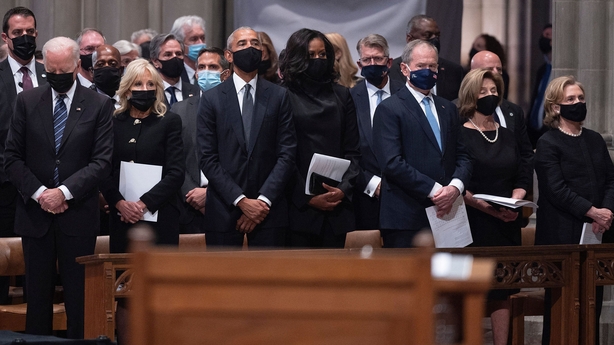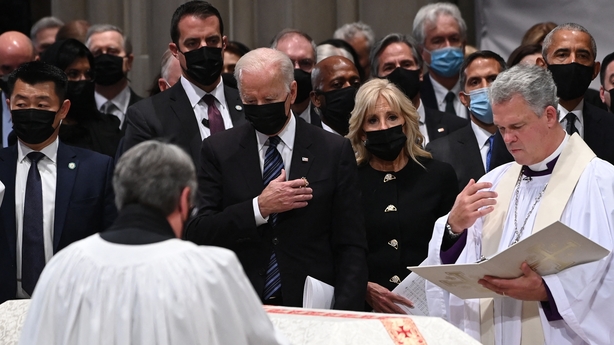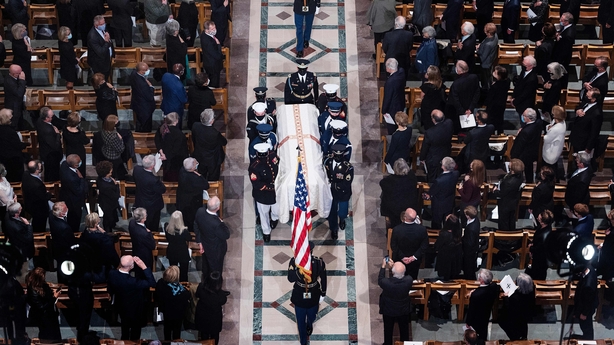Three American presidents joined in remembering late US secretary of state Colin Powell today, as a polarised Washington came together for the funeral of the four-star general and veteran statesman.
Joe Biden, his predecessors Barack Obama and George W Bush, and former top diplomat Hillary Clinton sat in the front row alongside Mr Powell's wife, Alma, at the National Cathedral to honour the trailblazing African American who served four administrations and earned global respect over his long career.
Mr Powell was "a figure who almost transcended time, for his virtues were Homeric: honesty, dignity, loyalty and an unshakable commitment to his calling and word," said Madeleine Albright, who preceded him as US secretary of state.
Joe Biden's immediate predecessor, Donald Trump - who attacked Colin Powell after his death over his support for the Iraq war - was absent from the ceremony.

The 84-year-old retired four-star general died on 18 October from complications from Covid-19.
He had been vaccinated for the coronavirus, but had been weakened by cancer and had early signs of Parkinson's disease.
His son Michael Powell praised his father for his commitment to service, especially in the military. "He loved the troops with all his heart," he said in his address.
"He knew you could not ask your troops to do anything you were unwilling to do yourself."
A son of Jamaican immigrants, Mr Powell shattered glass ceilings in a career that took him from combat in Vietnam to becoming America's first Black national security advisor under Ronald Reagan.
He served four presidents and kept his distance from partisan politics, fending off encouragement to run for president or another office.

From 1989 to 1993, he was chairman of the Joint Chiefs of Staff at the Pentagon.
In 2001, President Bush named him secretary of state, leading to the one dark stain on his otherwise sparkling reputation.
In a February 2003 speech to the UN Security Council on behalf of the Bush administration, he said the United States had evidence of weapons of mass destruction in Iraq.
The claim served as the basis of the US invasion of Iraq a month later, but was later proven to have no foundation.


